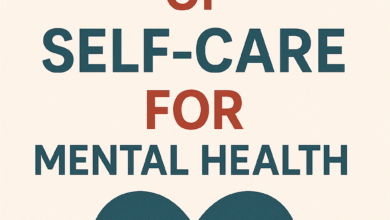Social Anxiety – How To Deal With It?
I remember that at one of my first presentations at the university, suddenly, stepping up to the podium, I forgot everything I wanted to say. I was drenched in sweat, I felt heat on my face, I felt like I was going to pass out. The only thought that occupied my mind at that moment was: I failed the group, and everyone would be angry and disappointed with me.
If you experience strong anxiety in various social situations, such as meeting new people, using common spaces, eating in public, speaking in front of people, etc., and fear that you will expose yourself, then you are likely to suffer from social anxiety. A large proportion of those experiencing social anxiety avoid situations in which they are expected to face such challenges or use alcohol or other substances beforehand. Social anxiety correlates with a high risk of alcohol abuse, depression, loneliness, career stagnation, and difficulty finding a suitable partner. However, there are many effective methods for overcoming social anxiety.
Social anxiety or just introversion?
I would say that introversion is a characteristic at birth, unlike social anxiety, which is acquired over time depending on the way of upbringing and socialization. If in early childhood you felt rejected, for example, by children in kindergarten, you may have perceived “others” as critical and bad. The behavior of parents who were constantly worried about “what people will say” and not exposing themselves could also be a factor, which has modeled yours accordingly. However, social anxiety can be overcome.
How to help yourself with social anxiety?
First, it’s good to realize what situations you avoid. If you suffer from social anxiety and you have to, for example, go to an important meeting, you will feel a lot of tension, but the moment you decide not to go, you start to feel better.
The relief (sometimes the reward) perpetuates the fear of judging people. For example, you feel anxious when considering an option on how to initiate an acquaintance with a certain person. The next moment, you simply decide not to engage, and your anxiety immediately subsides. This slump “trains” you – “to make me less anxious, I will avoid talking to strangers”.
Relief reinforces the choice not to do one or another performance-related activity until you begin to avoid more and more situations, limiting the development of your own potential.
An important point in overcoming this type of anxiety is to face the distressing social situation so that you understand that nothing bad will happen to you from the contact with a stranger or the gathering and that your anxiety will undeniably decrease. As with any fear, one must mobilize and face it in order to realize that one can cope with one or another situation.
- Make a list of situations that cause you anxiety and that you avoid. For example: meeting new people, presenting in front of people, talking to the opposite sex, etc.
- Then rate the situations on a scale of 0 to 10, with 10 being the highest level of anxiety and panic attack. It is possible to get the following: to speak in front of many people – 10, but to have lunch with someone – 3.
- The next step is to test the validity of these assumptions – face the situation. What does this mean? I’ll give you this example: I had a client who thought she would “lose her mind” if she appeared in front of a group of important clients. She rated her anxiety at the highest possible score of 10. After “being put in the situation, she noted that her anxiety was more like a 4 than a 10. This showed that her perceptions were unrealistic. It is a good idea to write down your predictions about the situations and then compare the scales with the pre-estimated and the actual level of anxiety. Do this immediately after the event to make the second assessment more realistic.
- Then, to overcome social anxiety is to identify behaviors or rituals that relieve your condition when certain situations arise, but in the long run, bring a worse outcome. Examples of these are the use of alcohol, and sedatives, avoiding other people’s eyes, or speaking very fast. The problem with such patterns of behavior is that they reinforce the feeling that you cannot do without them. Once you identify them, you should take care to eliminate them.
- The next step is to challenge your own anxious thoughts, which are usually automatic and negative. Attack them with questions like Is anyone really going to give my concern much thought? Is it so scary to say you forgot your point? What evidence do I have that people are discussing my anxiety?
Practice what worries you!
It is a good exercise to imagine and play out the whole situation in your mind from start to finish. For example: you go to an office party with people from another department, which bothers you; continue the development of the event until your anxiety subsides. As each catastrophic irrational thought arises, challenge it with a question. Don’t give in to them, the thoughts are sure to pop up automatically and try to sabotage you. In case you’re thinking, “Everyone is going to see how nervous and anxious I am!” remind yourself that most people don’t really pay much attention to you and have no way of knowing exactly how you feel. Visualize anxiety as a wave that comes and goes. Say to yourself: “I will do this, despite my anxiety!” .
Accept that you will be anxious during the situation, but if you continue not to avoid such instances, your anxiety will subside and you will find that you are not really losing control.
Think how quickly you forget or do not pay much attention to the worries, blushes, and forgotten thoughts of acquaintances or strangers in such situations! Realize that actually how you feel at a given moment doesn’t really matter to the rest of the world, and even blushing in a given situation is a normal physiological process.
Very often after the situation has passed, the social anxiety sufferer begins to criticize their performance. Try patting yourself on the back instead and congratulating yourself for facing your fear, stepping out of your comfort zone, and not running away from the situation. The idea is not to be flawless or even to do well, the idea is to tolerate the discomfort and conquer the fear.



